The children lived on a desert island for more than a year, shaming the author of "Lord of the Flies"
Categories: Children | History | World
By Pictolic https://pictolic.com/article/the-children-lived-on-a-desert-island-for-more-than-a-year-shaming-the-author-of-lord-of-the-flies.htmlThe novel "Lord of the Flies", written by Nobel Prize winner William Golding, is a classic of world literature. But not everyone agrees with the pessimistic scenario described in the book. Writer Rutger Bregman, author of the book "Humanity: a Hopeful Story", told not a fictional, but a real story of six young Robinsons. These guys, in his opinion, will help to restore people's faith in kindness and reason, which Golding trampled on with his gloomy work.
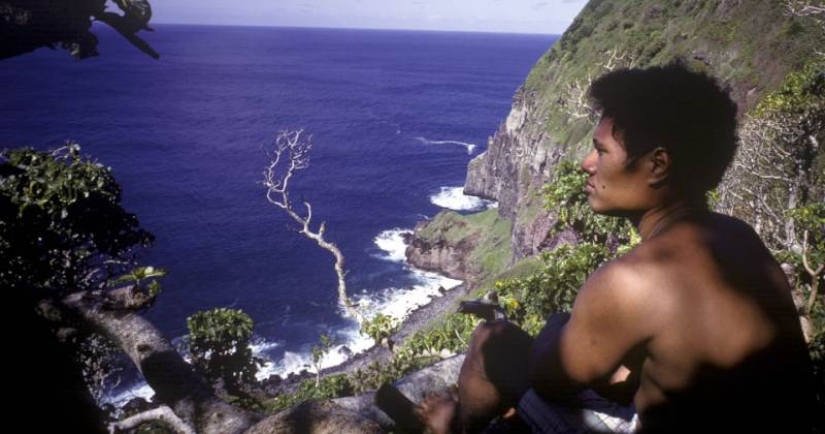
Published in 1954, the novel "Lord of the Flies" convinces readers that people are inherently evil and only life in a civilized society keeps them from showing cruelty and aggression. The heroes of the book are a group of British schoolchildren who, due to a plane crash, found themselves on a desert island in the middle of the ocean.
In a group of children, a leader stood out who tried to maintain order in the group, but his efforts were in vain. After a while, some of the boys turned into vicious savages, ready for any atrocity, prone to self-destruction. But the writer Rutger Bregman disagreed with the main idea of Golding's novel and began searching for similar situations, but which occurred not in a fictional world, but in reality.
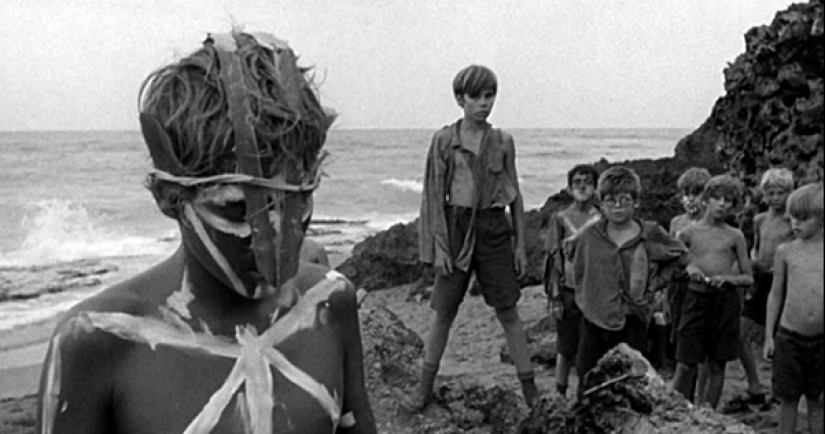
His efforts were crowned with success and he told the story of six students of a boarding school in the Polynesian state of Tonga, who foolishly ended up on a desert island and spent 15 months there. What happened in their group during this time completely destroys the gloomy theory of the Nobel laureate and gives this world a good chance.
The boys aged 13 to 16, whose names were Zion, Stephen, Colo, David, Luke and Mano, studied at a Catholic boarding school in the city of Nuku'alofa, the capital of Tonga. Since it is a closed Catholic educational institution it's not at all the place where boys dream of being, over time, the urchins have matured an escape plan.
They decided to leave not only the hated school with its iron discipline and Bible reading, but also their small island country. The guys planned to get a boat and get to the Fiji Islands or even to New Zealand, to start a new adult life there.
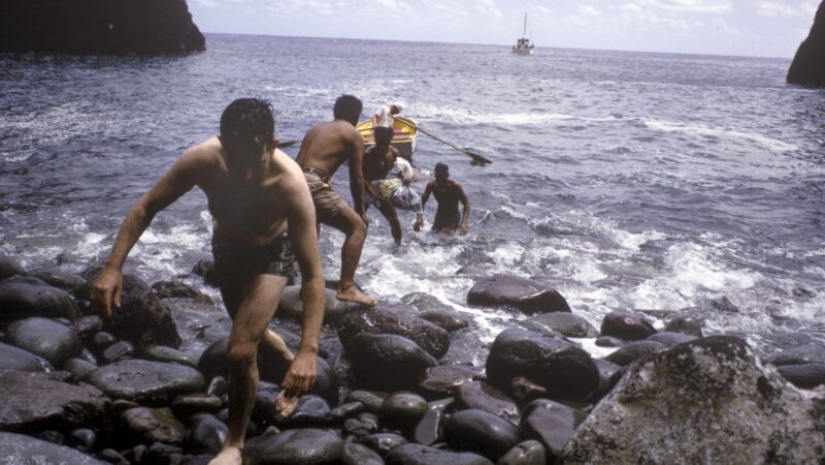
The fugitives stole a boat from a local fisherman and, taking with them a small supply of fresh water, a couple of bundles of bananas, a dozen coconuts and a gas burner, went out into the open ocean to meet freedom. They had to regret their idea just a few hours later. Suddenly a strong storm arose, which deprived the fishing vessel of sails and oars. Fortunately, the boat itself remained afloat and was not even damaged.
For seven days the boys were given over to the will of the waves and the wind. The boat was drifting in the open ocean, and her crew had no idea where she was. At first, the would-be sailors ran out of food, and then fresh water began to come to an end. When the not too pleasant prospect of death from thirst and exhaustion loomed ahead, the ship washed ashore on the tiny island of Ata, with an area of only 2.3 square kilometers.
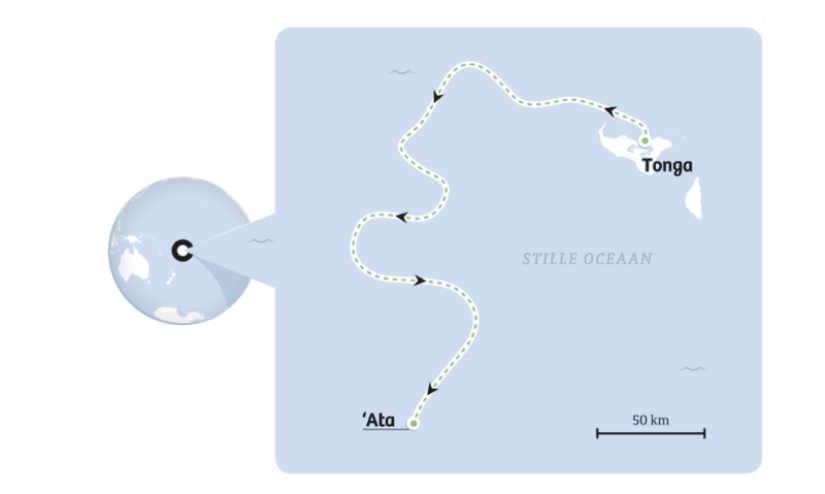
It was a piece of land covered with tropical greenery and remote from sea and air routes. Ata was once inhabited by people, but in 1863 Peruvian slave traders seized its entire population and took it to the plantations of South America. Since then, the small island has been empty and the boys who landed on its shore in 1966 became its first guests in several decades.
Having barely recovered from the shocks, the guys decided that they needed to organize their lives in such a way as to exclude conflicts. It was agreed that if a quarrel was brewing, its instigators would have to immediately disperse to different ends of the island until they calmed down.
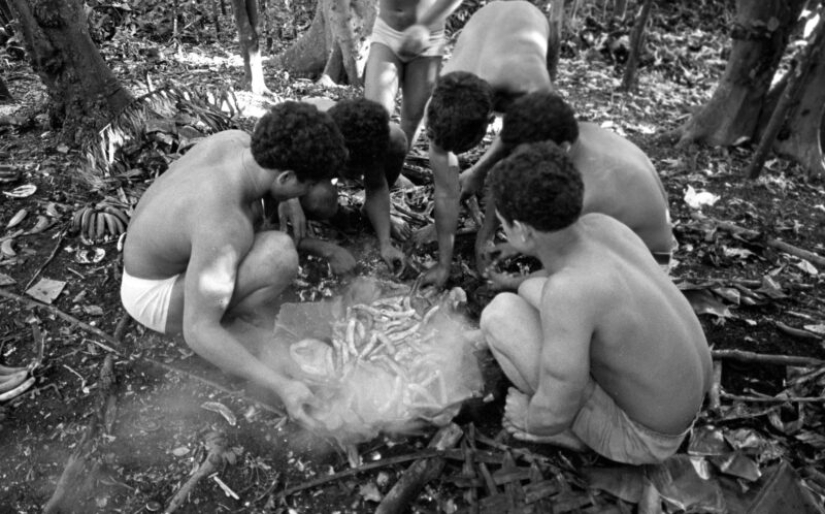
The young islanders were divided into three pairs, each of which was responsible for its own front of work. The boys deprived of the benefits of civilization had plenty of things to do, but they divided them all conditionally into three categories: getting food, kitchen and guard. The search team combed the island, collecting fruits, eggs of birds and turtles, as well as hunting small animals. The second couple kept the fire burning and cooked food, and the third was on duty on the beach so as not to miss a passing ship.
Every day Zion, Stephen, Colo, David, Luke and Mano started with a cheerful song with a homemade guitar, and ended with a prayer. A little later, the guys found the ruins of the village and caught several feral chickens. Fruit trees also grew near the remains of huts, which diversified the diet of involuntary hermits.
The biggest problem for the boys was the extraction of drinking water. There were no reservoirs and springs on coral island, so we had to rely only on rare rains. But soon the guys learned how to collect rainwater in improvised containers made of improvised materials, and constant thirst stopped poisoning their lives.
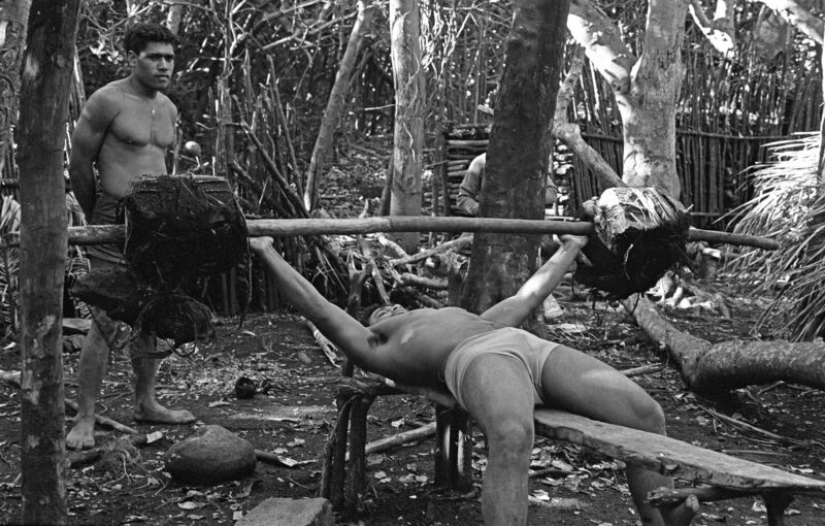
There were no accidents on the island. One day Stephen fell badly and broke his leg. Friends carefully put a splint on him and took care of the patient until the bone healed. When life on the island improved a little and the young colonists had a small poultry farm and a vegetable garden, there was even free time. In order not to indulge in laziness, the guys built sports equipment out of stones and sticks and engaged in athletic gymnastics.
Did the young Robinsons try to leave the island? Yes, and repeatedly. During their involuntary isolation, they created several versions of rafts, but all of them were powerless against the waves of ocean surf and treacherous reefs surrounding the island.

In 1966, an Australian Peter Warner, sailing by on a yacht, noticed a fire on the shore of an uninhabited island and, having stuck to the shore, found boys there. He took them to their native Nuku'alofa, from where they sailed in search of adventures 15 months ago.
The appearance of the boys became a real sensation not only on the Tonga Islands, but throughout Oceania. The fugitives had long been considered missing and no one hoped to see them alive and unharmed. But most of all, the fisherman whose boat the schoolchildren stole for their trip was happy. He immediately came to the police and demanded to arrest the thieves.
Six boys immediately ended up in a local prison and Peter Warner had to rescue them a second time, paying the cost of the boat, a fine and court costs to the authorities. The islanders appreciated the Australian's care for children and made him a national hero of the state of Tonga. Warner even managed to negotiate with one of the Australian TV channels about the filming of a documentary about the life of children on Ata Island and their miraculous rescue.
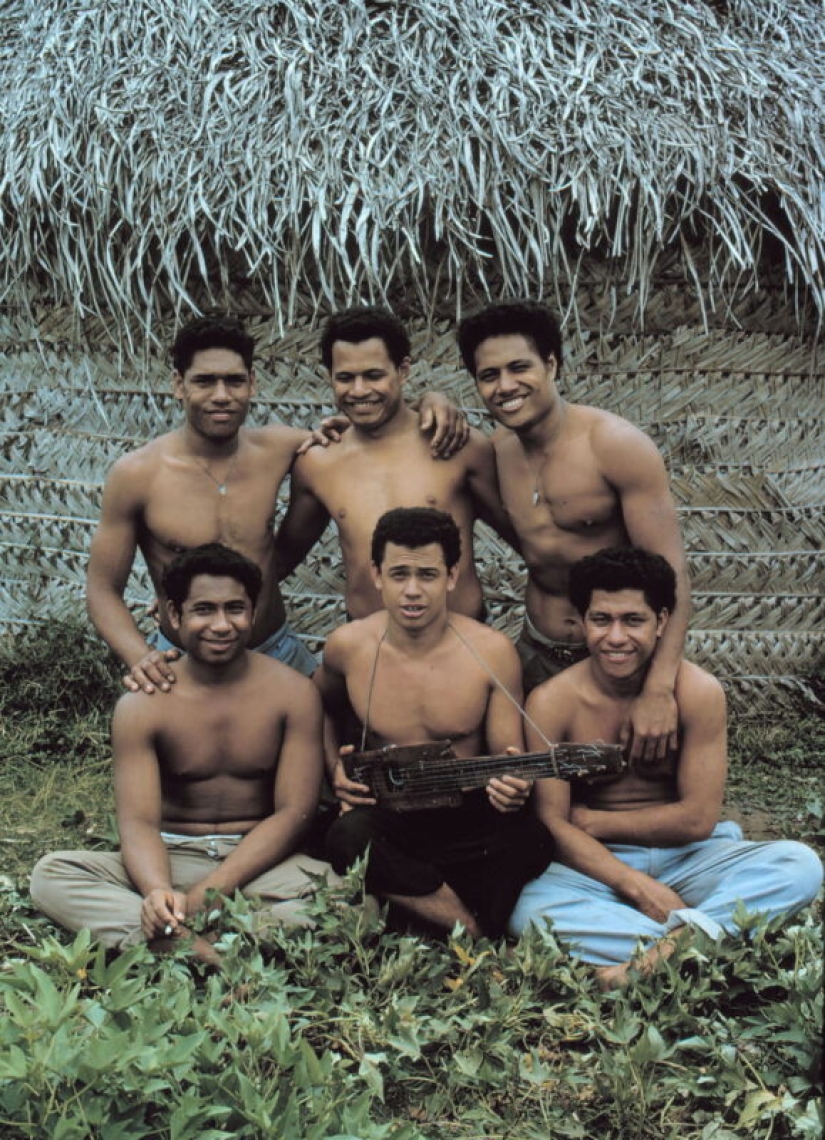
Unfortunately, a few years later, the story of courageous and reasonable children who showed the superiority of thought and will over circumstances was completely forgotten. And the novel "Lord of the Flies", which tells about the rapid degradation, has remained a bestseller and has been continuously reprinted in dozens of languages for more than half a century.
The boys ended up on a desert island by accident, and the Englishman Brandon Grimshaw deliberately fled to a piece of land in the ocean from a civilization that bored him. He did not go wild and did not become an ogre, but organized the most amazing nature reserve of the Seychelles and saved the flora and fauna of his island from destruction.
Recent articles

It's high time to admit that this whole hipster idea has gone too far. The concept has become so popular that even restaurants have ...

There is a perception that people only use 10% of their brain potential. But the heroes of our review, apparently, found a way to ...

New Year's is a time to surprise and delight loved ones not only with gifts but also with a unique presentation of the holiday ...